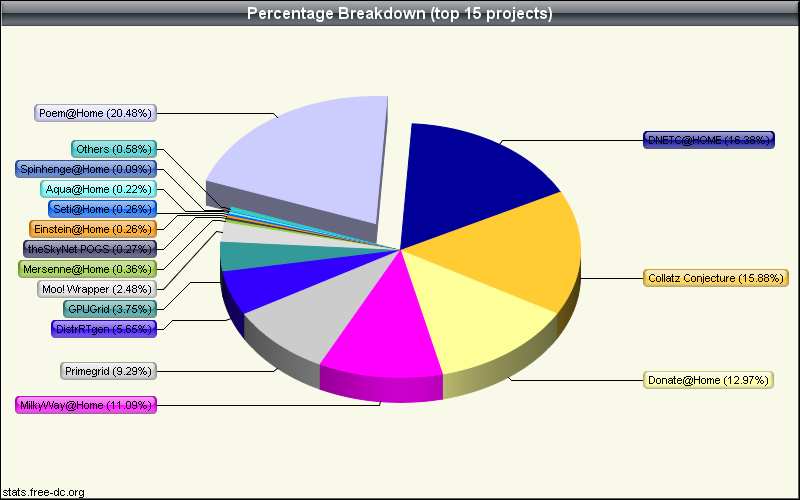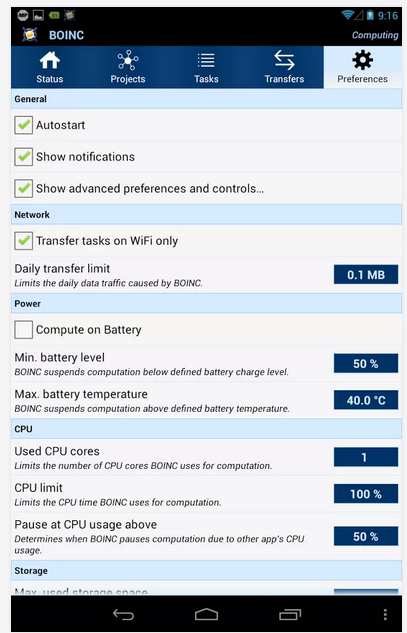| Use That Spare Android Time To Solve World Problems - BOINC |
| Written by Harry Fairhead | |||
| Sunday, 28 July 2013 | |||
|
You almost certainly know about SETI@home which uses otherwise idle CPU cycles to search for "little green men". Now the Android little green robot can join in as well. BOINC (Berkeley Open Infrastructure for Network Computing) is a distributed computing platform that gathers up idle computing time to make it less idle. You sign up to offer your device to the project by installing a client which monitors your CPU usage and takes over when it notices that it is doing nothing. It started out just analyzing data from radio telescopes, looking for a "wow" type signal that might indicate that there were life forms primitive enough to still be using radio communications somewhere in the universe. However, the general idea was, and is, so good that the scope of the project was widened. There are now many projects in many areas that you can choose from. Of course, there is still SETI@home but you can choose from projects in number theory, astronomy, climate change, chemistry, life sciences,AI, geology and even cryptography. If your machine has a GPU, then often it is possible to make use of this to speed up the computation. As well as downloading the app you also have to allow for some data download and upload as the app gets its project specification and returns the results.
click to enlarge
Currently the project has around 2 million users of which about 300,000 are active. The grid provides around 7 petaFLOPs, which compares well to a "super computer" which is usually in the range 1 to 20 petaFLOPs. Of course, the comparison isn't quite fair because of communication time and the computing power is shared out between projects. The amount of computing power available might be about to take a big jump up if the new Android client proves popular. The potential Android BOINC pool is around one billion worldwide. OK, the computing power is going to be less per client, but one billion devices is still a big pool. The big plus for portable devices is that they are rarely switched off and hardly used overnight. There are, of course, problems with extending BOINC to portable devices and the obvious ones are network charges and battery drain, The app, which is derived from the standard BOINC client for Linux, does allow the user to control resource consumption. You can set it to work only when connected via WiFi and on mains power. This might seem restrictive but, given that at night many mobile phones are connected via home WiFi and plugged into a charger to get ready for the morning, it might not be a serious problem.
You can download the app from the Play store. Currently the only projects supported on the Android app are: - Asteroids@home At a different level, if you have a project that you think would be suitable for grid computing then you can ask BOINC to include it - though you are going to have to set things up yourself. You can also use the BOINC software to set up a grid computer facility using your own computers.
More InformationBOINC Android app on Play Store Related Articles
To be informed about new articles on I Programmer, sign up for our weekly newsletter, subscribe to the RSS feed and follow us on Twitter, Facebook or Linkedin.
Comments
or email your comment to: comments@i-programmer.info
|
|||
| Last Updated ( Saturday, 07 March 2020 ) |



